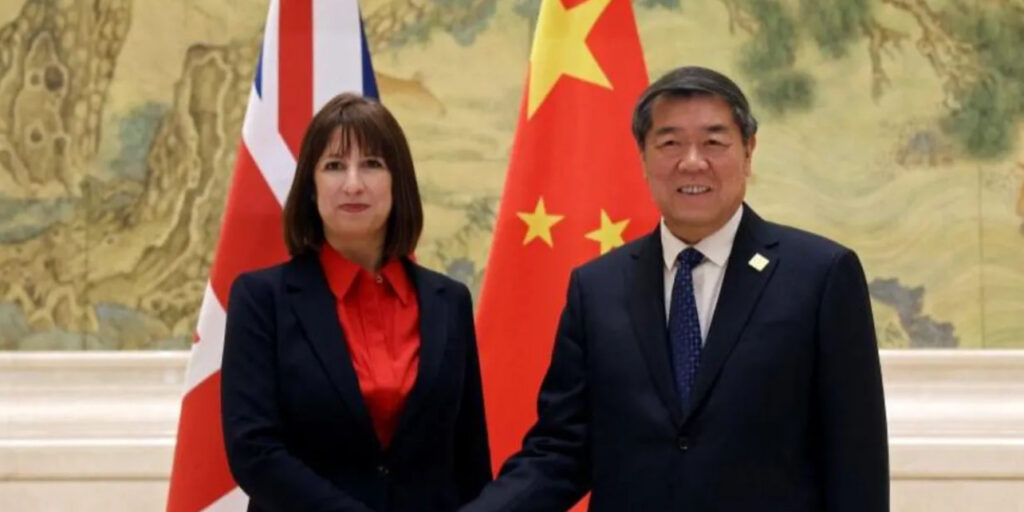Chancellor Rachel Reeves has defended her visit to China aimed at strengthening economic ties despite mounting pressure over soaring government borrowing costs and a weakening pound. Reeves emphasized that fostering a long-term relationship with China aligns with the UK’s national interest and aims to deliver economic growth that benefits working people across Britain.
Focus on Trade and Investment Amid Criticism
Speaking at UK bike manufacturer Brompton’s Beijing store, Reeves dismissed criticism from Conservatives who accused her of “fleeing to China” during a time of financial strain. She insisted her economic plans remain unchanged, reiterating her commitment to the fiscal rules laid out in the Budget.
During the visit, Reeves met with Chinese Vice-Premier He Lifeng to discuss trade and investment opportunities. China, the world’s second-largest economy, is the UK’s fourth-largest single trading partner. In 2020, exports to China supported over 455,000 UK jobs, according to Treasury figures.
“Growth Is the Government’s Top Priority”
Reeves stated, “Growth is the number one mission of this government. Economic stability is the bedrock for economic growth and prosperity.” However, rising UK borrowing costs, which hit a 16-year high this week, coupled with a falling pound, pose potential challenges to her fiscal plans.
Reeves has pledged not to borrow to fund day-to-day spending and aims to reduce debt as a share of national income by the end of this parliamentary term. Analysts warn that market turbulence could complicate her ability to meet these goals.
UK-China Relations and Difficult Issues
Reeves’ trip also reflects a commitment to deeper economic cooperation following an agreement between Prime Minister Sir Keir Starmer and President Xi Jinping last year. However, she pledged to address difficult issues during her discussions, including China’s support for Russia’s war in Ukraine and human rights concerns in Hong Kong.
“We need a pragmatic and good relationship with countries around the world. That is in our national interest,” Reeves said, emphasizing her focus on helping British businesses expand globally.
Challenges Facing UK Economic Policy
Paul Johnson, director of the Institute for Fiscal Studies, highlighted that the UK’s inconsistent approach to relations with China may raise skepticism among Chinese officials. He also noted the difficulty Reeves may face in adhering to her fiscal rules given the markets’ heightened sensitivity to the UK’s financial position.
The UK economy has shown stagnant growth, with businesses bracing for tax increases due in April. Meanwhile, Treasury officials have stated that the visit includes efforts to bring down trade barriers faced by British businesses in China, particularly in financial services.
Shein Controversy and Human Rights Concerns
Reeves’ visit coincides with scrutiny over Chinese-founded retailer Shein. The fashion giant has faced allegations of forced labor in its supply chains, specifically concerning cotton sourced from Xinjiang. Shein has denied the claims, but MPs continue to challenge the company on these issues.
UK Delegation Explores Opportunities in Financial Services
Accompanying Reeves on the trip are Bank of England Governor Andrew Bailey, Financial Conduct Authority Chief Executive Nikhil Rathi, and senior representatives from major UK financial services firms. Talks are set to focus on expanding financial trade in Shanghai and addressing barriers to British businesses operating in China.


